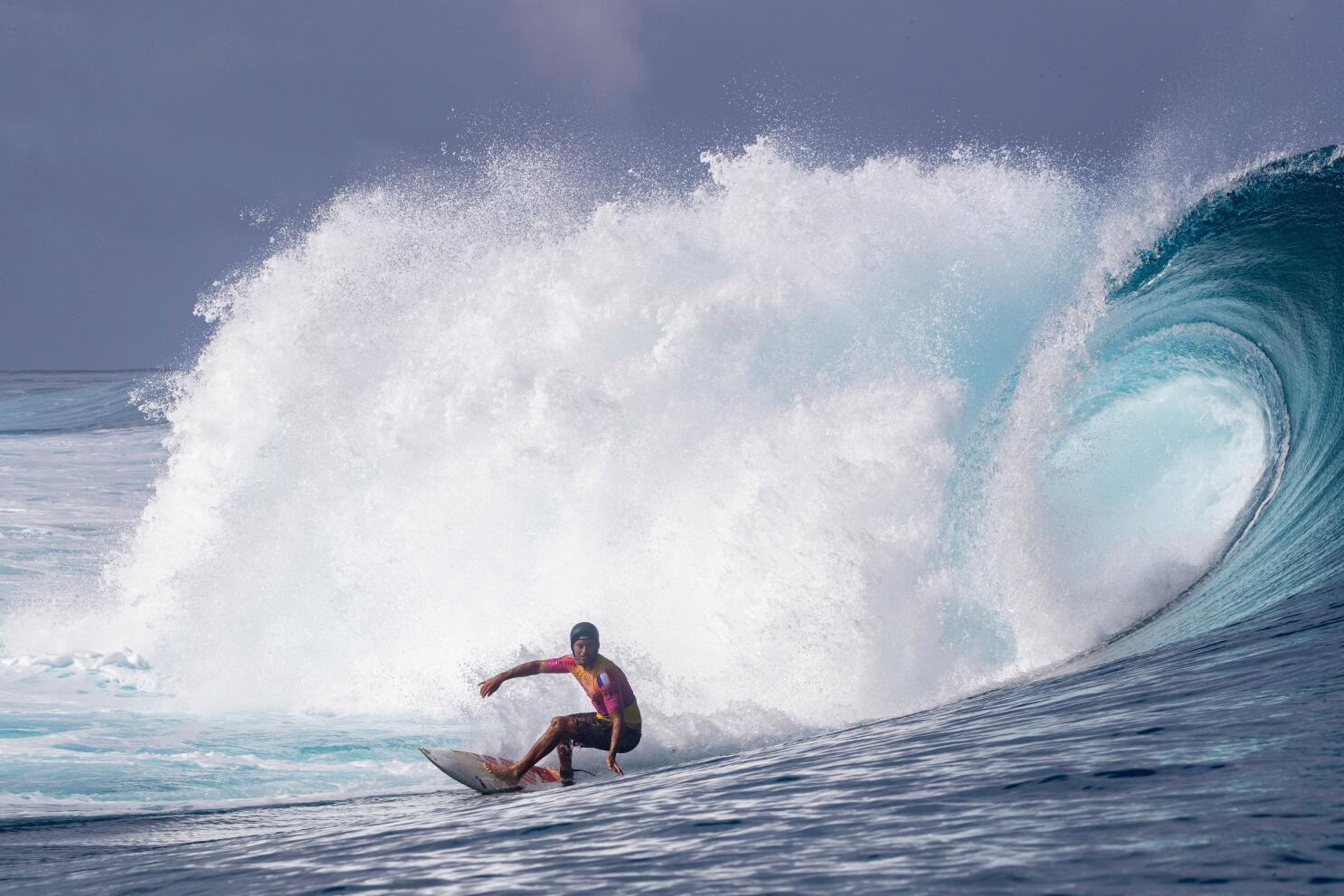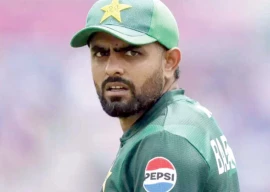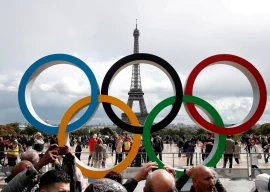
With less than eight months to go before the Paris Olympics, the organisers and the French government are entering an awkward period in which cracks in the preparations are straining relationships.
The main areas of concern are the environmental issues around the surfing venue in Tahiti, the safety of the unprecedented opening ceremony on the Seine, the efficiency of public transport in the Paris region and, of course, the shadow of Russia's invasion of Ukraine.
The anger and irritation that has shrouded journeys for Paris commuters over the last 18 months has spilled into the political arena.
In mid-November the city's Socialist mayor Anne Hidalgo declared that the transport system in the city would "not be ready" for the summer of 2024.
True, perhaps, but not diplomatic, and it drew the government's wrath.
Transport Minister Clement Beaune admitted "there is still work to be done" while accusing the mayor of "political treason".
Valerie Pecresse, who is president of the Paris region and consequently in charge of wider transport matters, ruffled feathers by announcing the price of metro tickets would double during the Olympics to four euros ($4.30).
Paris city council has now asked for the fares to be reviewed.
Meanwhile, former prime minister Jean Castex, now in charge of Paris transport operators RATP, has admitted that the network is "obsolete", with "at least eight" lines no longer able to provide "a quality public service".
The International Olympic Committee (IOC) said diplomatically it was "reassured" but described the transport operation as "extremely complex".
From the moment it was announced that the opening ceremony would take place on the river Seine, there have been questions about both the practicality and the safety.
A long stretch of river is by its nature harder to police than a stadium.
Since the outbreak of war between Israel and Hamas on October 7, followed by the murder of a teacher in France by an Islamist former pupil, concerns in France have risen.
A fatal knife attack near the Eiffel Tower on December 2, which claimed the life of a German tourist, further heightened concerns.
How safe will the athletes, heads of state and even the public feel?
The US delegation at a presentation on security zones expressed its "confidence" on the subject on Thursday while French Sports Minister Amelie Oudea-Castera gave an ambiguous response to calls for an alternative option.
"No plan B, but a second plan," she said.
After much back and forth, the surfing competitions will be held in French Polynesia as planned, the regional president has said, declaring a blazing row between organisers, authorities and environmental groups to be over.
Polynesian leader Moetai Brotherson told AFP on Sunday that a meeting with environmental associations had yielded "a solution" allowing the contest to be held at Teahupo'o on the island of Tahiti.
Debate about the suitability of having the island host the competitions has made waves for weeks, reaching a high point early this month after a construction barge used to install a new judges' tower in the sea broke corals during testing.
Oudea-Castera had ruled out relocating of the Olympic surfing events, saying there was no alternative location, but criticised what she confessed was a "poorly prepared" test event.
France's Atlantic coast hosts some of Europe's most famous surfing beaches and local officials had been hopeful of hosting the events.
Since Russian tanks rolled into Ukraine in February 2022, there have been questions about the presence at the Paris Games of Russian athletes and those of its ally Belarus.
On Friday, the IOC finally gave the green light for them to compete albeit under a neutral banner and subject to strict conditions.
No teams, only individuals who do not actively support the war in Ukraine and are not contracted to the military, will be admitted.
The IOC says there are currently only 11 athletes -- eight Russians and three Belarusians -- who have qualified who meet these criteria.
Moscow denounced the "discriminatory" conditions while Kyiv protested that the IOC's decision "encourages Russia and Belarus to continue their armed aggression against Ukraine".
World Athletics' president Sebastian Coe made his sport's position clear: "You may see Russian or Belarusian athletes under neutral flags in Paris, but it won't be in athletics."
Calls for a blanket Russia/Belarus ban are likely to grow as the number of verified Ukrainian civilian dead -- numbered by the UN in November as at least 10,000 -- continues to rise.
1732013245-0/now-you-see-me-(1)1732013245-0-405x300.webp)
1730959638-0/trump-(19)1730959638-0-165x106.webp)



1732000633-0/Express-Tribune-(3)1732000633-0-270x192.webp)















COMMENTS
Comments are moderated and generally will be posted if they are on-topic and not abusive.
For more information, please see our Comments FAQ